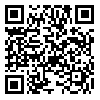BibTeX | RIS | EndNote | Medlars | ProCite | Reference Manager | RefWorks
Send citation to:
URL: http://ijn.iums.ac.ir/article-1-2008-en.html
2- Associate professor, Pregnancy Health Research Center, Zahedan University of Medical Sciences, Zahedan, Iran.
3- Member of Student Research Center, Zahedan University of Medical Sciences, Zahedan, Iran.
4- Researcher, Minimally Invasive Surgery Research Center, Iran University of Medical Sciences, and PhD student of epidemiology, Tehran University of Medical Sciences, Tehran, Iran (٭Corresponding author). Tel: 09357750428 Email: alesaleh70@yahoo.com
Abstract
Background & Aim: Medication is one of the most important aspects of the nursing profession. This study was carried out with the aim of determining nurses’ perspective of types and causes of medication errors in selected hospitals of Zahedan University of Medical Sciences.
Material & Methods: It was a descriptive cross-sectional study that was conducted in 2013. The research population consisted of 127 nurses working in selected hospitals affiliated to Zahedan University of Medical Sciences who were recruited by census. Data was collected by a three-part questionnaire and analyzed by t-test and ANOVA using SPSS-PC (v. 16).
Results: The mean and standard deviation of the most frequent medication errors were respectively related to the rapid infusion of the medicines that nurses should have injected slowly (0.47±0.92), non- adherence to the necessary steps related to the medicines requiring special attention (0.46±0.82), and no dilution of medicines that must be diluted (0.37±0.72). Also the most common causes of medication errors were reported as fatigue related to heavy workload (99.2%), many ill patients (80.3%) and distorted and unreadable physician's orders (79.5%). Significant relationships were found between the occurrence of medication errors and type of employment and shift work (p<0.05).
Conclusion: Regarding the types and causes of medication errors from nurses’ perspective, approaches to increase nursing staff, using electronic medical kardexes, and retraining courses on pharmacologic information would be helpful.
Received: 2015/01/3 | Accepted: 2015/04/17 | Published: 2015/04/17
| Rights and permissions | |
 |
This work is licensed under a Creative Commons Attribution-NonCommercial 4.0 International License. |





